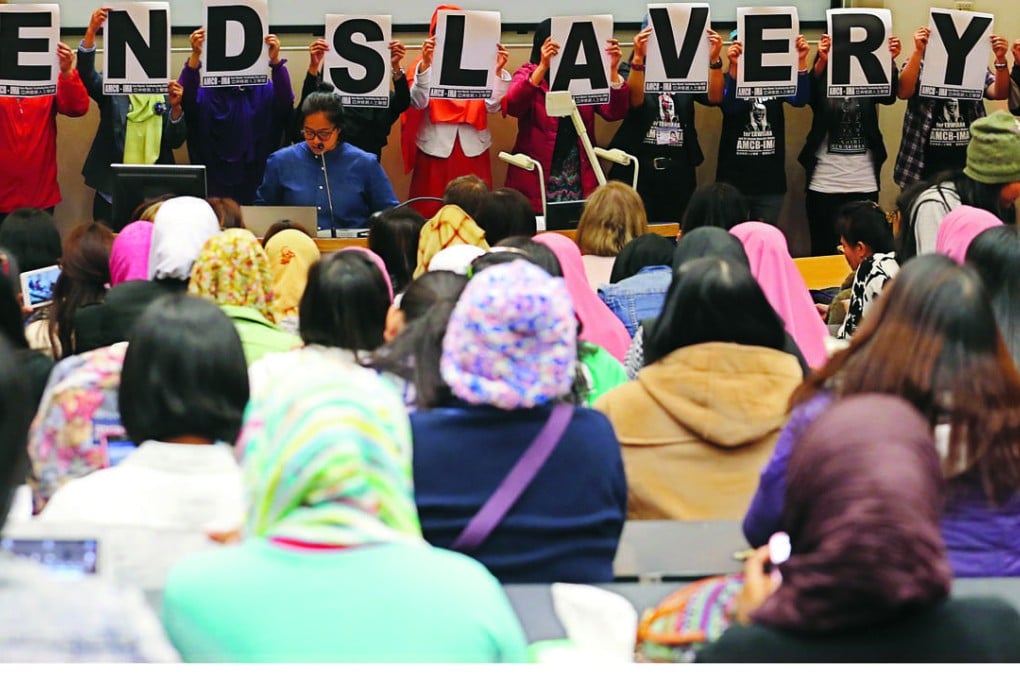Documentary takes plight of abused domestic worker Erwiana Sulistyaningsih from Hong Kong to the world
Filmmaker says the case of the Indonesian woman was not the only case of its kind with scholars labelling their plight ‘modern-day slavery’

The first documentary on the shocking story of abused former Indonesian domestic helper Erwiana Sulistyaningsih could be screened around the world to highlight human slavery, the filmmaker said at its premiere at City University on Sunday.
“This film is not just about Erwiana and Erwiana’s case is not the only case,” said Gabriel Ordaz, who came to Hong Kong from the US in 2010 and started making the documentary Erwiana: Justice For All in December 2013.
‘I still have the scars’: Indonesian maid Erwiana attends Hong Kong documentary screening, describes new life as university student
“As we sit here today, there’s probably somebody somewhere in a home suffering the same thing that Erwiana suffered. This is why I’d like to bring this message out.”
The 90-minute documentary, which includes graphic images of Erwiana’s horrific injuries, tells how the young woman came to Hong Kong in 2013 as a domestic helper, hoping to earn money to fund her further education.
It goes on to narrate how she ended up being assaulted and tortured by her former employer, Law Wan-tung, for eight months, and how she turned to her employment agency for help, only to be sent back to her abuser.

The documentary covers her story coming to light and how she and others fought a lengthy legal battle that eventually saw Law sentenced to six years in jail.